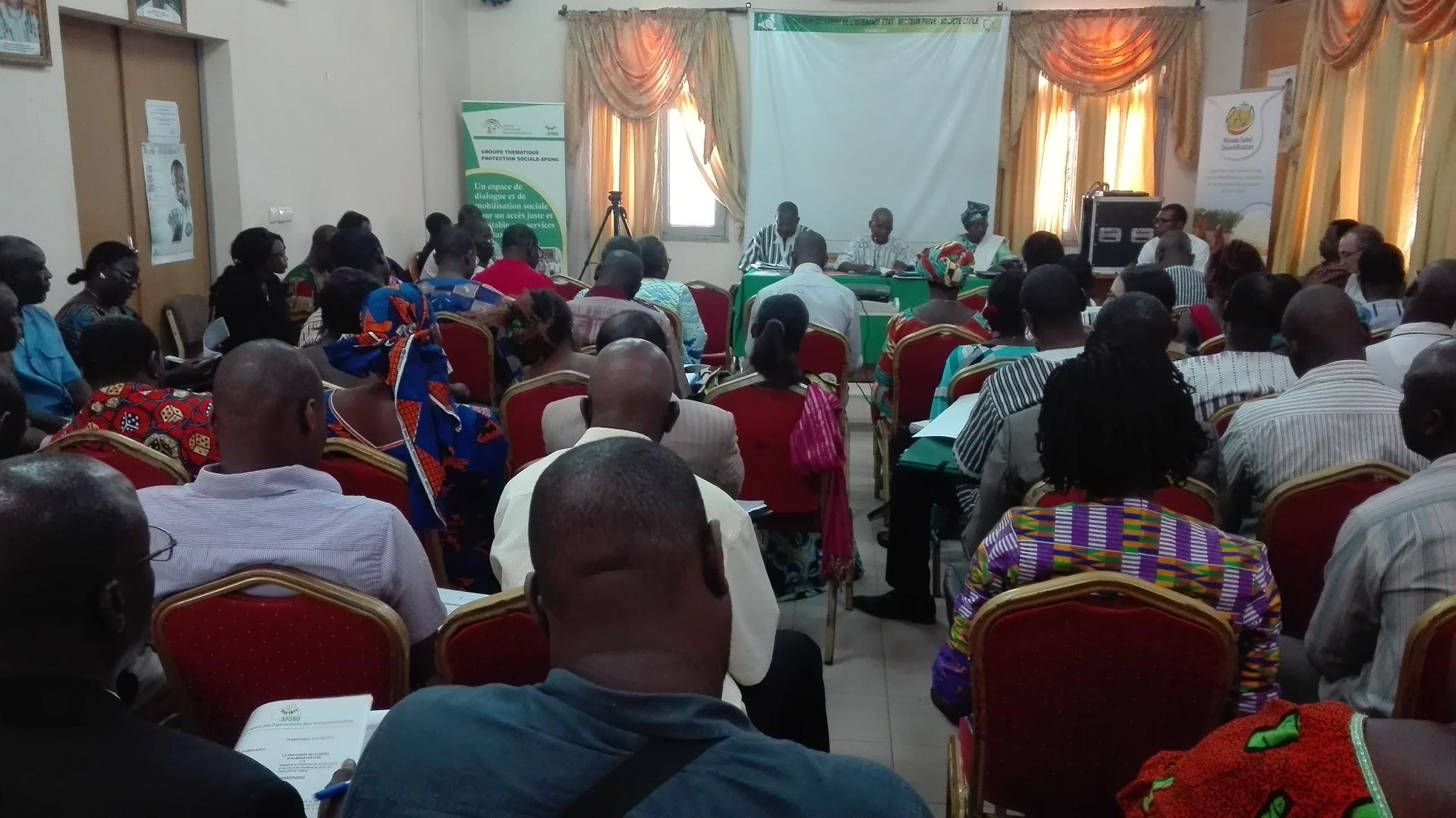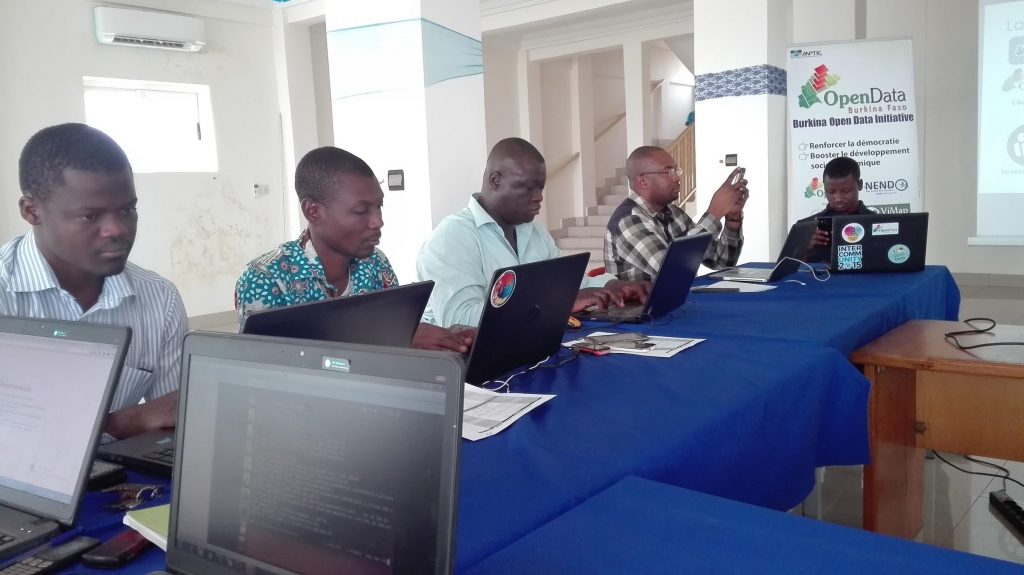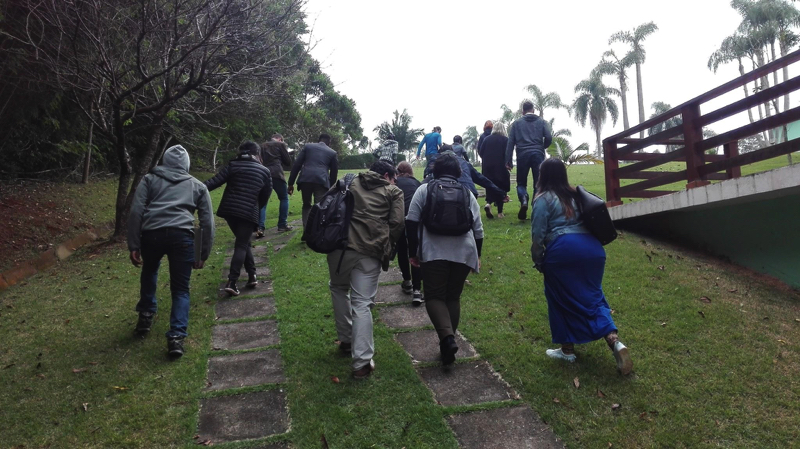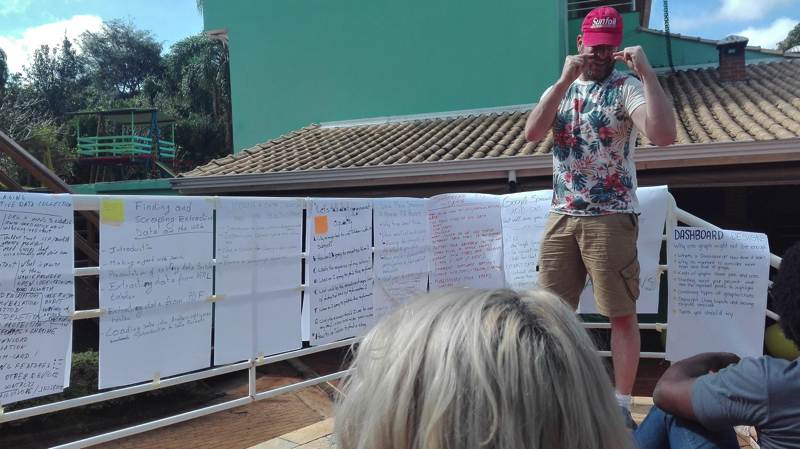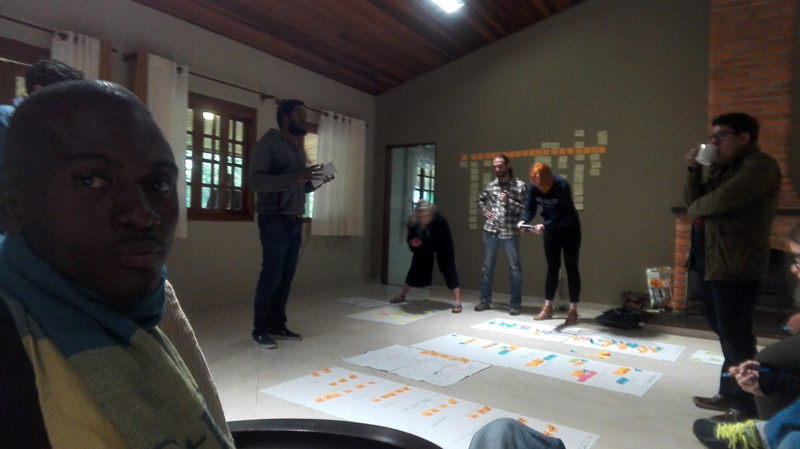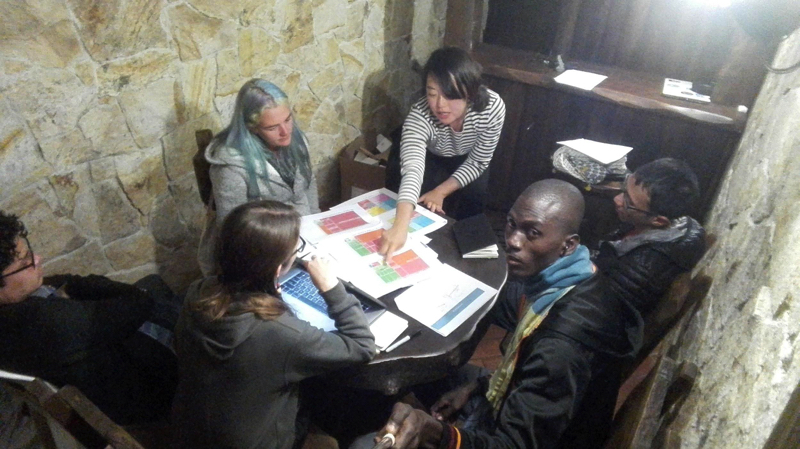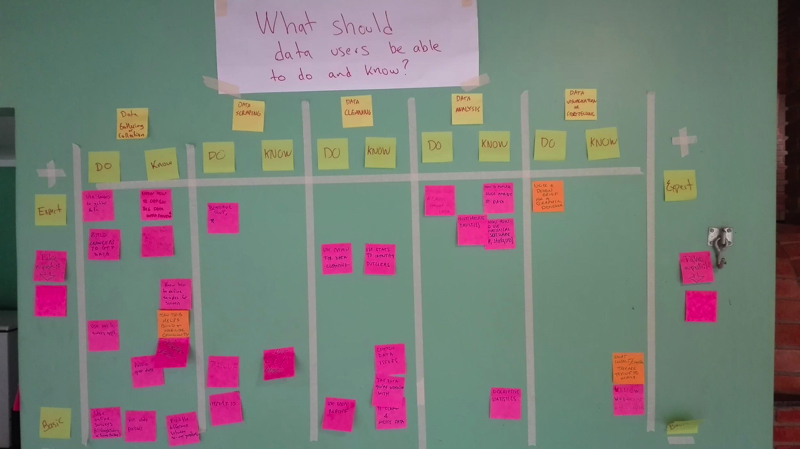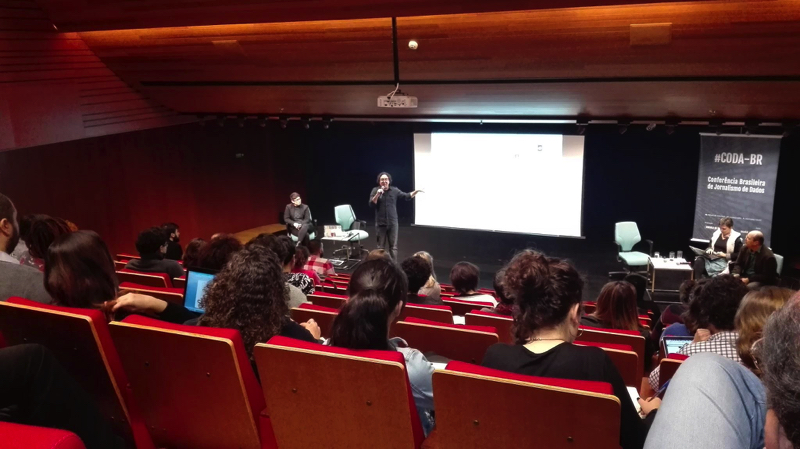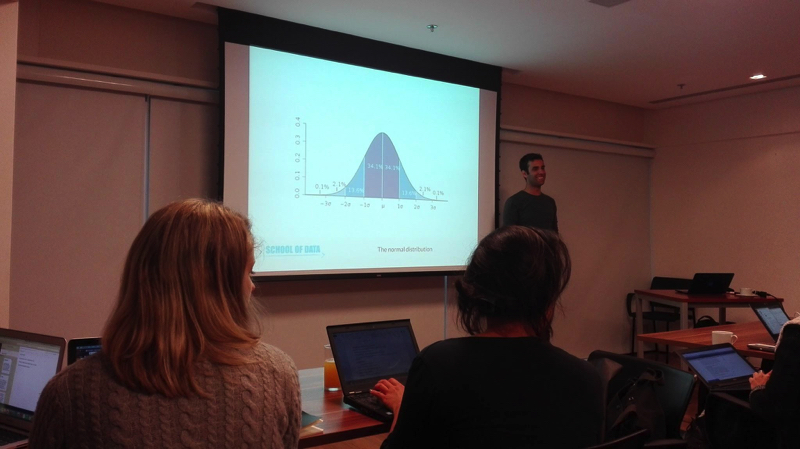SNI 2016: ICT and Open Data for Sustainable Development
Malick Lingani - November 23, 2016 in Data Blog, Fellowship
The National ICT Week (SNI) is an annual event in Burkina Faso dedicated to promote ICT. Each year, thousands of people are introduced to the basics of operating computers; impactful ICT initiatives are also rewarded by a host of prizes. This year’s event, the 12th edition, was hosted by the Ministry of Digital Economy from May 31st to June 4th with the theme of ICT and sustainable development.
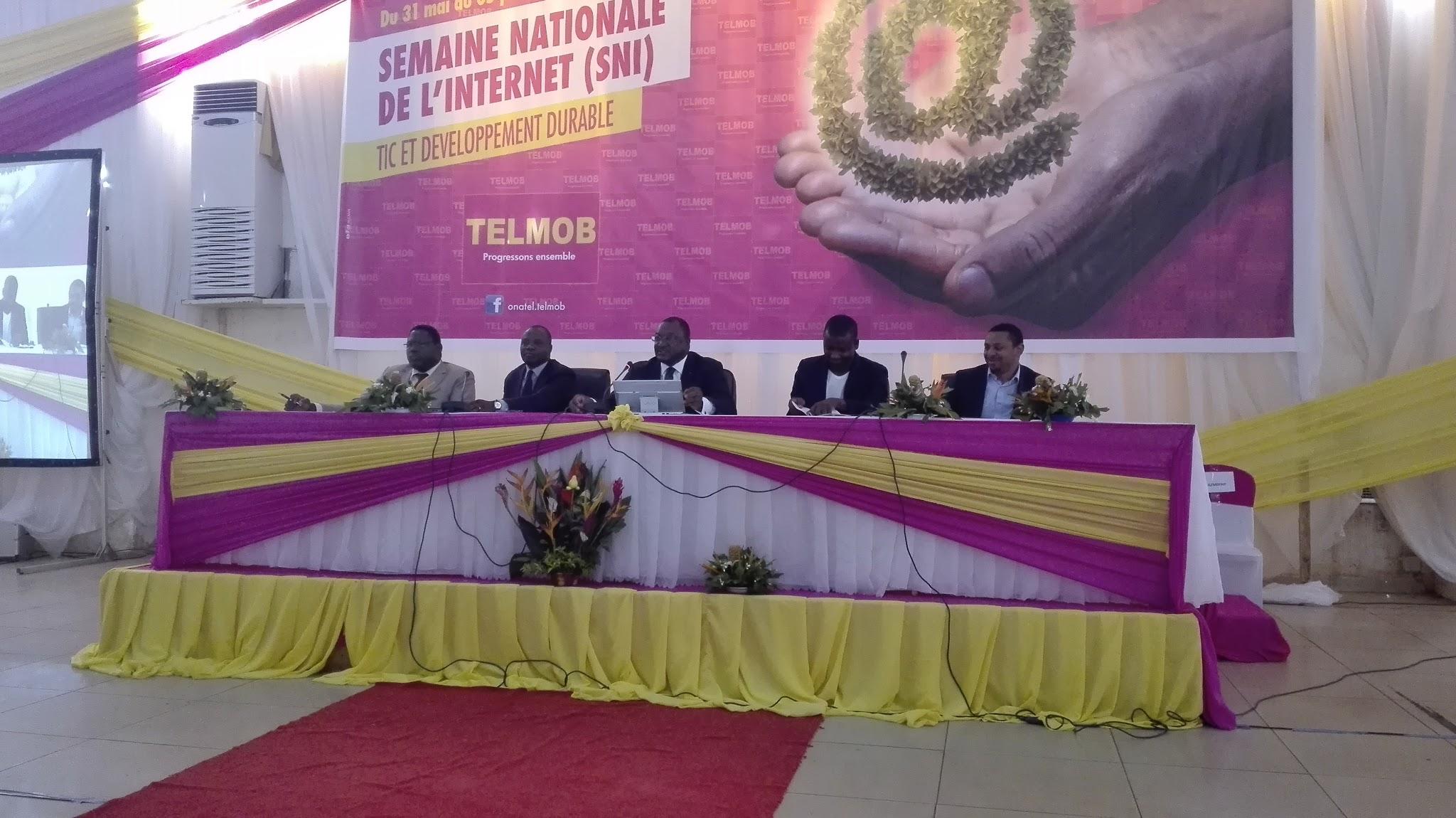
The panelists of the conference
The Burkina Open Data Initiative (BODI) was represented by its Deputy Manager, Mr. Malick Tapsoba. He gave an introductory speech that gave the audience a general idea as to what open data is about. He then continued by presenting some of the key accomplishments of BODI so far:
- NENDO, a web application developed with data on education available on the Burkina Faso open data portal, was presented as an example of how open data can be used to boost accountability in education systems
-
the GIS data collected on drinkable water wells has become a key decision-making tool toward the achievement of ‘Sustainable Development Goal (SDG) 6: ‘Ensuring availability and sustainable management of water and sanitation for all.’
-
The open election project: a web platform that allowed the visualization of both the 2015 presidential and legislative election results. The visualizations were created almost in real-time, as fast as the data was released by the electoral commission. This project, initiated by BODI, has strongly contributed to the acceptance of the election’s results by all contenders.
Some ongoing projects of BODI were also presented:
- Open Data and government procurement tracking project. This project aims to improve transparency in the government’s budget spending and to unlock opportunities for enterprises based on market competition.
-
Open Data to monitor both foreign funds and domestic funds: “When the data are not available and open, how can we measure progress toward Sustainable Development Goals?”, said Mr. Tapsoba.
Mr. Tapsoba also announced that a hackathon had been organised to showcase the use of open data and that the results would be revealed at the closing ceremony of SNI. One participant, a student who took part in the hackathon, called for more initiatives like these. He said that he strongly appreciated the way hackathons allow programmers and non-programmers to work together to build data applications and, for him, this helps to demystify ICT in general.
Mr. Sonde Amadou, CEO of Dunya Technology and one of the panelists, spoke about Smart Cities: African cities are growing fast, he said, and Ouagadougou, the capital city of Burkina Faso, is one of them. But Open GIS Data, he continued, is a stumbling block for Smart Cities and work is needed in this area.
Dr. Moumini Savadogo, IUCN Head Country Programme, talked about the IUCN Red List of threatened, critically endangered, endangered and vulnerable species in Africa. This list helps raise awareness and encourages better informed decisions for the conservation of nature, something critical for sustainable development.
The 400 participants of the conference were well served and I was confident that most of them can now be considered as open data advocates. As a School of Data Fellow, I made sure to speak after the panelists, pointing out the importance of strong institutions supported by transparency and accountability (SDG 16) for achieving the 2030 agenda in general. So I encouraged the audience to take a look at Open Data portals, notably BODI and EITI, for transparency in the extractive industry, including the environmental impact. I also mentioned the GODAN initiative for SDG 02 and called the panelist Malick Tapsoba to develop more on that. The open data community of Burkina Faso has made that day one more step on its journey towards building a stronger open data community and data literacy advocates.
| Infobox | |
|---|---|
| Event name: | SNI 2016: ICT and Open Data for Sustainable Development |
| Event type: | Conference |
| Event theme: | ICT and Open Data for Sustainable Development |
| Description: | The conference part of Burkina Faso’s National ICT Week (SNI) purpose was to showcase the role of ICT and Open Data to meet the Sustainable Development Goals (SDGs). The conference was designed to bring together ICT Specialists, Academia and Open Data activists to explore and learn about Sustainable development Goals and how ICT and Open Data can contribute to that Agenda |
| Speakers: | Pr. Jean Couldiaty (University of Ouagadougou) Facilitator, Mr. SONDE Amadou (CEO of Dunya Technology), Mr. Malick Tapsoba (BODI Deputy Manager), Dr. Moumini SAVADOGO (IUCN Head Country Programme) |
| Partners: | Burkina Faso Ministry of Digital Economy, Burkina Faso Open Data Initiative (BODI), International Union for the Conservation of Nature (IUCN), University of Ouagadougou |
| Location: | Ouagadougou, Burkina Faso |
| Date: | May 31st 2016 |
| Audience: | ICT specialists, Open Data and Data Literacy enthusiasts, Students, Journalists |
| Number of attendees | 400 |
| Gender split: | 60% men, 40% women |
| Duration: | 1 day |
| Link to the event website: | http://www.sni.bf |


